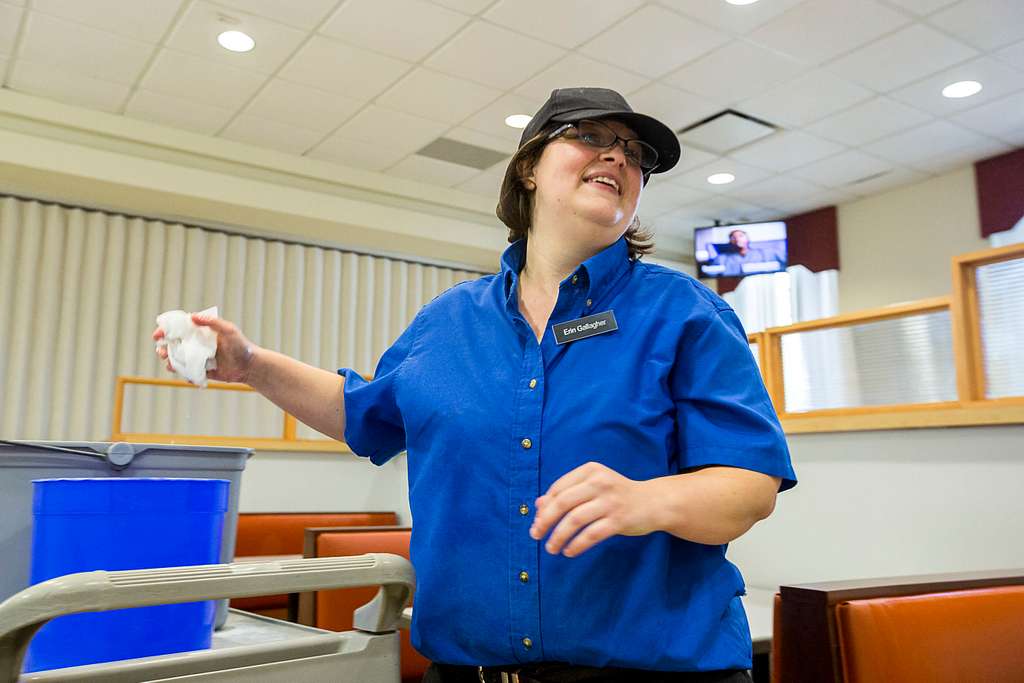Who are the Working Poor?
by CAPP-USA

Who are the working poor? Is it just economics?
Working Poor – Definition
The working poor are those who are employed but whose income falls beneath the poverty line due to low-income jobs and low familial household income.
In the United States this represents 4.1 percent of people in the labor force and is made up of predominantly part-time workers and women, Hispanics and Blacks, those without a high school diploma and Individuals employed in service occupations. (U.S. Bureau of Labor Statistics)
The Working Poor – Economics
These 6.3 million Americans struggle to lift themselves and their families out of material poverty.
Globally, Pope Francis said material poverty “affects those living in conditions opposed to human dignity: those who lack basic rights and needs such as food, water, hygiene, work and the opportunity to develop and grow culturally”. (Pope Francis, 2)
The Working Poor in the United States
Visit any impoverished town or inner city and it will be clear that material lack is not the key problem. Many who live in the bottom economic quintile do not lack food, water, etc. In fact, they possess many of the consumer goods deemed important by the culture.
Catholic social teaching challenges us to think more deeply about who is poor – those who lack “the opportunity to develop and grow culturally”. (Pope Francis, 2)
A Deeper Issue
The Church warns us to avoid a one-dimensional definition of the poor as “[i]t is not possible to understand man on the basis of economics alone”. (Centesimus Annus, 24)
As Pope St. John Paul II taught, “it is well known that there are many other forms of poverty, especially in modern society – not only economic but cultural and spiritual poverty as well.” (Centesimus Annus, 57)
In the U.S., the poor live with rampant drug use, crime, poor education, collapsed family structures, and sexual exploitation. Their lives, in too many cases, tend to be “solitary, poor, nasty, brutish, and short”. (Thomas Hobbes, Leviathan, 1651)
Focusing only on economic responses (earned income tax credits, minimum wage, etc.) will not cure this ill because, “Of itself, an economic system does not possess criteria for correctly distinguishing new and higher forms of satisfying human needs from artificial new needs.” (Pope St. John Paul, 36)
The Working Poor – Moral Poverty
The Church defines a pernicious moral poverty which “consists in slavery to vice and sin“. (Pope Francis, 2)
“Contemporary culture seems to have lost the sense of good and evil“. (Pope Benedict XVI, 1) and it is here that the poor and rich suffer poverty together.
Whether by choice or the “system”, these morally poor have forgotten that “Every human life is called to some task by God. Endowed with intellect and free will, each man is responsible for his self-fulfillment…he is the chief architect of his own success or failure.” (Pope St. Paul VI, 15)
Spiritual Poverty
Another poverty shared by the economically rich and poor is spiritual poverty which happens “when we turn away from God and reject his love.” (Pope Francis, 2)
“If we think we don’t need God…we are headed for a fall. God alone can truly save and free us.” (Pope Francis, 2)
Pope Francis, in fact, radically teaches, “there is only one real kind of poverty: not living as children of God and brothers and sisters of Christ.” (2014 Lenten Message, 1)
This may be the most widespread poverty in America.
What about the “System”?
What is the source of this crisis? Our problems originate “in a profound human crisis: the denial of the primacy of the human person!” (Pope Francis, 55)
Because “Without God man neither knows which way to go nor even understands who he is”! (Pope Benedict XVI, 78)
Who Can We Do?
“It is all men who are called to further the development of human society as a whole.” (Pope St. Paul VI, 17)
This is true especially if one’s poverty (whether material, moral/cultural or spiritual) rises to the level of “destitution” where one is “without faith, without support, without hope”. (Pope Francis, 2) In these cases a person may be unable to become the “chief architect of his own success or failure.” (Pope St. Paul VI, 15)
So, “Everyone must lend a ready hand to this task, particularly those who can do most by reason of their education, their office, or their authority.” (Pope St. Paul VI, 32)
And, “[t]hose who are more influential, because they have a greater share of goods and common services, should feel responsible for the weaker and be ready to share with them”. (Pope St. John Paul II, 39)





